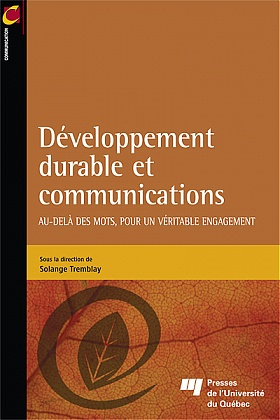What is the importance of communication in relation to sustainable development? What path did it follow? What are the basis and the ethical foundations of responsible communications? The SUSTAINABILITY|COMMUNICATION Group examined the issue by focusing on its progress in Quebec and Canada.
Foundations
Following the publication of the first codes of ethics in public relations in the early 1950s and the international Code of Athens in 1965, ethical concerns have increasingly taken their place in the corporate world. In 1973, the International Public Relations Association (IPRA) dedicated the first issue of its Gold Papers to ethics. Over the years, the topic of ethics has increasingly been discussed at professional forums and in publications.
On September 7, 1970, the Irving Whale barge sank in the Gulf of Saint Lawrence, resulting in an oil spill that reached the shores of the Magdalen Islands. Up to this point unprecedented in Canadian history, within a few days this environmental disaster brought together local, regional, national and international media to cover the flood of information pouring in with the dirty waves off its Atlantic shores. A series of subsequent disasters around the world and in Quebec – Love Canal, Three Mile Island, Tchernobyl, Bhopal, and Saint-Basile-le-Grand – further galvanized public opinion and the media. The lessons have been clear: many communication professionals have learned to deal with these new realities on site, directly in the crisis zone, paving the way for environmental communication, risk communication and crisis communication in Canada and the rest of the world. In the 1990s came a proliferation of training sessions, workshops, symposia, conferences and publications on these questions.
In this context, risk prevention and issue management has become a highly-valued specialty in organisations. Communication models are evolving to give more room for listening, dialogue, and exchange with stakeholders on the basis of respect, trust, and mutual understanding. A handful of specialists pushed their actions even further by introducing communication on social responsibility and sustainable development inside large corporations, guiding them in meeting their civic responsibilities following major campaigns denouncing problems with regard to child labour, sweatshops, and human rights violations.
By 1990, the ideas behind sustainable development had gained international credence. Earlier, books like Silent Spring by Rachel Carson (1962) and Limits to Growth by the Club of Rome (1972) raised the alarm by declaring that the Earth’s resources are not infinite and that a strictly economic vision of development is not viable. In 1987, the Bruntland Report proposed a definition of sustainable development that gained international recognition. The 1992 United Nations Earth Summit in Rio concluded with a global commitment to comply with sustainable development principles and underlined the important role of communication and education. In the same year, the World Business Council for Sustainable Development (WBCSD) was created to promote sustainable development values in business. Ten years later, the World Summit on Sustainable Development in Johannesburg reaffirmed the importance of awareness-raising, information, and consultation on these issues throughout the world.
At the end of the millennium, the creation of the Sustainable Development Communications Network further served to focus efforts on integrating Internet communications into large-scale communication strategies.
At the beginning of the 2000s, communication on sustainable development and social responsibility was still very much in its infancy in organisations and was not yet part of the communication curriculum nor a research focus in Quebec and Canadian universities. However, a real turning point was emerging in all sectors of communication.
Solange Tremblay and Thérèse Drapeau
August 2011
Milestones of an evolution
- Publication of the first issue of the Canadian magazine Corporate Knights, dedicated to information on socially responsible companies. Published quarterly starting in 2003, it quickly became one of the most widely distributed magazines on these issues in the world.
- Creation of a research group on communication issues related to sustainable development, social responsibilities, and ethics in communication practices at UQAM (Université du Québec à Montréal). The Centre for Sustainable Development, Ethics and Communications is active in research, presentations, workshops, publications and training.
- At the dissolution of the group in the fall of 2010, the team continues its activities under its new name, SUSTAINABILITY|COMMUNICATION Group.
- In Canada, The Naked Corporation : How the Age of Transparency will Revolutionize Business becomes a bestseller for its presentation of transparency as a central force for the future of organizations and an essential dimension of sustainable development; a book that highlights the importance of communication for all their stakeholders.
- Ethics questions in public relations emerged as a major concern within the professional environment in Quebec, Canada, and elsewhere in the world. Several initiatives reflect this growing interest:
- In 2003, Global Alliance, an international association of public relations societies around the globe, published a Global Protocol on Ethics in Public Relations, the acceptance of which is mandatory for all association members (over 60 partners representing 150,000 professionals).
- One year earlier, the Société des relationnistes du Québec created its Ethics Committee.
- In 2004, the Canadian Public Relations Society implemented its Ethics Network.
- A vast research on public relations in Quebec, published in 2004, becomes the most important study to investigate this practice until then. Conducted in three phases during fall 2003 and winter 2004, the research presents an overall and specific portrait of professional practices in Quebec and analyzes their evolution over some dozen years. Providing the first available information about sustainable development, social responsibility and ethics in communication practices, the study reveals that issues related to sustainability and social responsibility are not yet really on the agenda of organizations and that communicators are rarely consulted on these questions (Maisonneuve, D., S. Tremblay et A. A. Lafrance, 2004). Highlights
- A major communication project was undertaken throughout Quebec with a vast public consultation on the Québec’s Sustainable Development Plan. More than 3,500 people participated in the public hearings held in 21 towns of Québec. Some 582 briefs were submitted and more than 800 people expressed their opinions about the plan.
- The Canadian group, Corporate Knights, issues its first ranking of the 100 most sustainable corporations in the world, a ranking that will be published on an annual basis. Global 100 Most Sustainable Corporations.
- Quebec’s National Assembly unanimously adopts the Sustainable Development Act. This major piece of legislation - making sustainable development an intrinsic part of the Québec government’s activities - highlights the central role of communication in all stages of this endeavour.

- A conference on communications in sustainable development (Colloque Développement durable et Communications – Vers un nouvel engagement des communicateurs) held on October, 4, 2006 at UQAM is acknowledged as the first contribution of communication professionals
to the implementation of Québec’s sustainable development plan.- The event also innovates by organizing the day on the principles of eco-responsibility, a new initiative for the Canadian communications community that gives participants a hands-on introduction to green event management by helping to reduce the environmental impact of the event. PROGRAMME
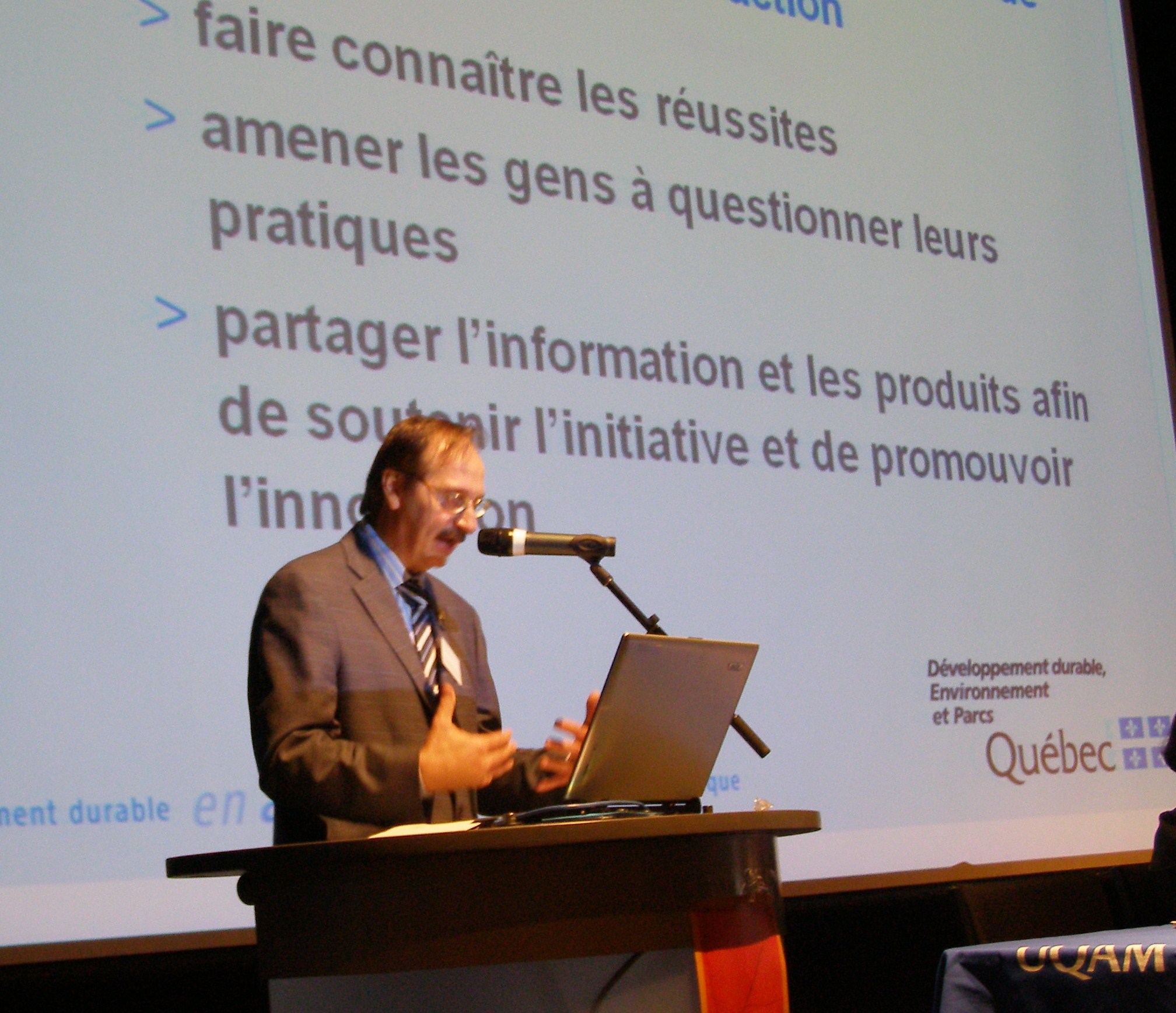
Léopold Gaudreau, Sous-ministre adjoint au Développement durable, Ministère du Développement durable, de l'Environnement et des Parcs - Québec
- The Declaration of the Communicators and Public Relations Professionals of Quebec on Sustainable Development, first of its kind in the communications field, is signed by major associations of communication professionals, during a ceremony honoring Pierre Dansereau, pioneer of sustainaible development in Quebec and Canada. Commitment
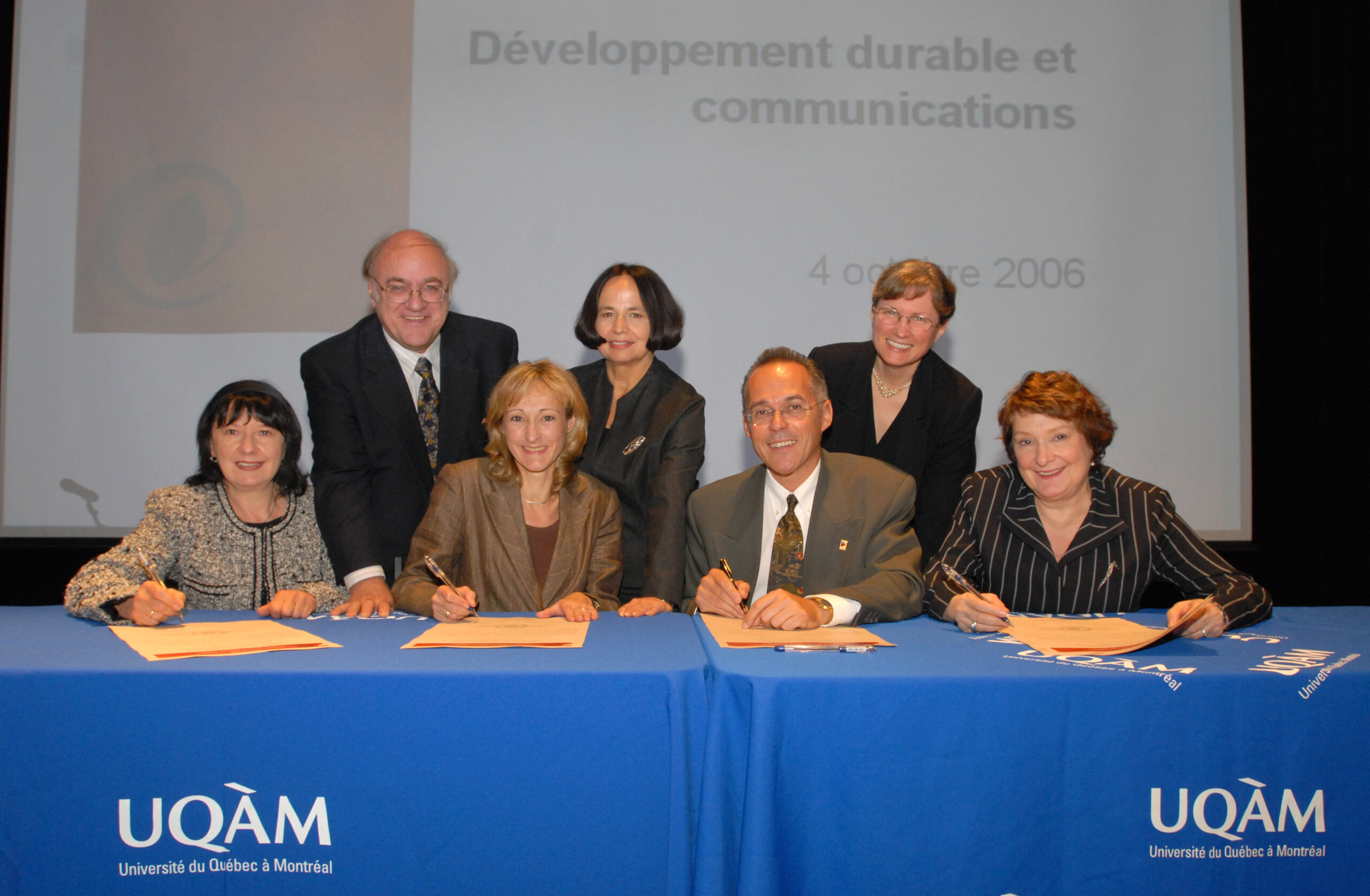
First rank - Signatories: Nicole Beaulieu, president, Société québécoise des professionnels en relations publiques. France Poulin, president, Association internationale des professionnels en communication-Montréal. Bernard Poulin, president, Association des communicateurs municipaux du Québec. Francine La Haye, president, Alliance des cabinets de relations publiques du Québec. Second rank - Organizers of the Conference: Michel Dumas, director - Centre Enzyme d'innovation, Solange Tremblay, director - Centre for Sustainable Development, Ethics and Communicationsns, Danielle Maisonneuve, chair - Chaire de relations publlques (UQAM).
- Creation of Novae, a Quebec information portal specialized in sustainable development which in just a few months becomes a central reference for professionals aware of these new issues.
- Publication of the first research on sustainable development and social responsibility in Canadian corporate communications : Développement durable et responsabilités sociales dans la communication d’entreprise : tendances canadiennes et québécoises.
- December - Presentation of the Declaration of the Public Communicators and Public Relations Professionals of Quebec on Sustainable Development to Pierre Dansereau, father of modern ecology and pioneer of sustainable development in Québec and Canada.
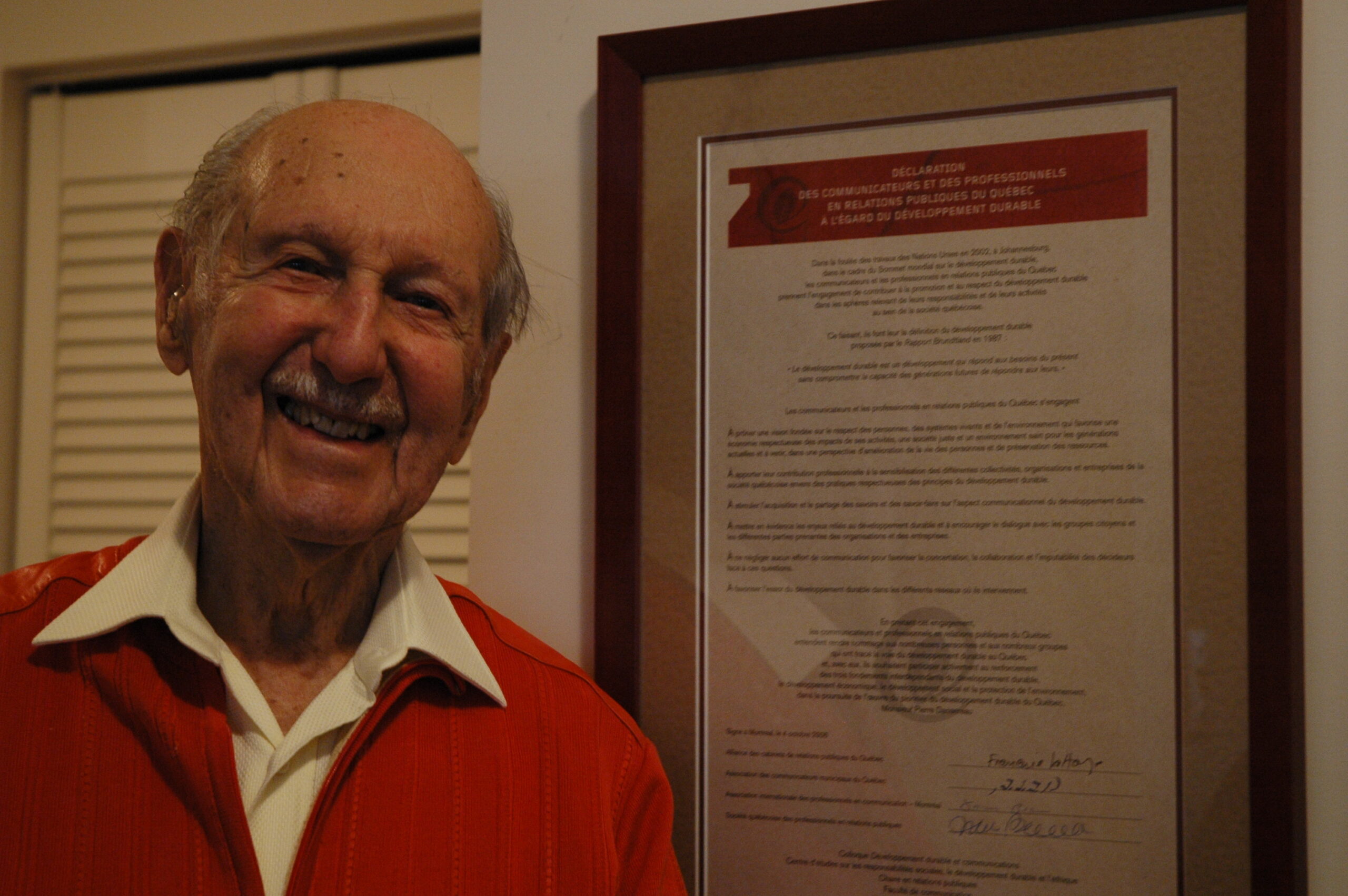
Pierre Dansereau - December 2006 (Photo: Caroline Gélineault)
- Publication of the book Développement durable et Communications – Au-delà des mots pour un véritable engagement. This is the first book to be published on this important communication issue in Canada.
- A mere fad for some, an irreversible social phenomenon for others, sustainable development raises many questions among communicators. Why should we be interested in it? Who is concerned? What is the role of communicators?
- First of its kind in the world, the Declaration of the Communicators and Public Relations Professionals of Quebec on Sustainable Development is cited internationally as a model for communication professionals around the world. Info
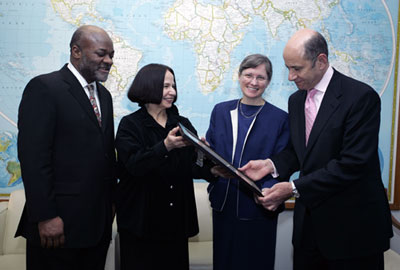
United Nations Headquarters – New York
- The Centre for Sustainable Development, Ethics and Communications hosts a round table on communication and sustainable development until the end of 2008, bringing together some ten communication professionals very active on these issues.
- To respond to the growing interest of communicators in sustainable development and counter the rise of greenwashing while no guide is yet available on the subject, the French publication, Vertitude Magazine, publishes an article highlighting the key elements of responsible communications. A text signed by Solange Tremblay.
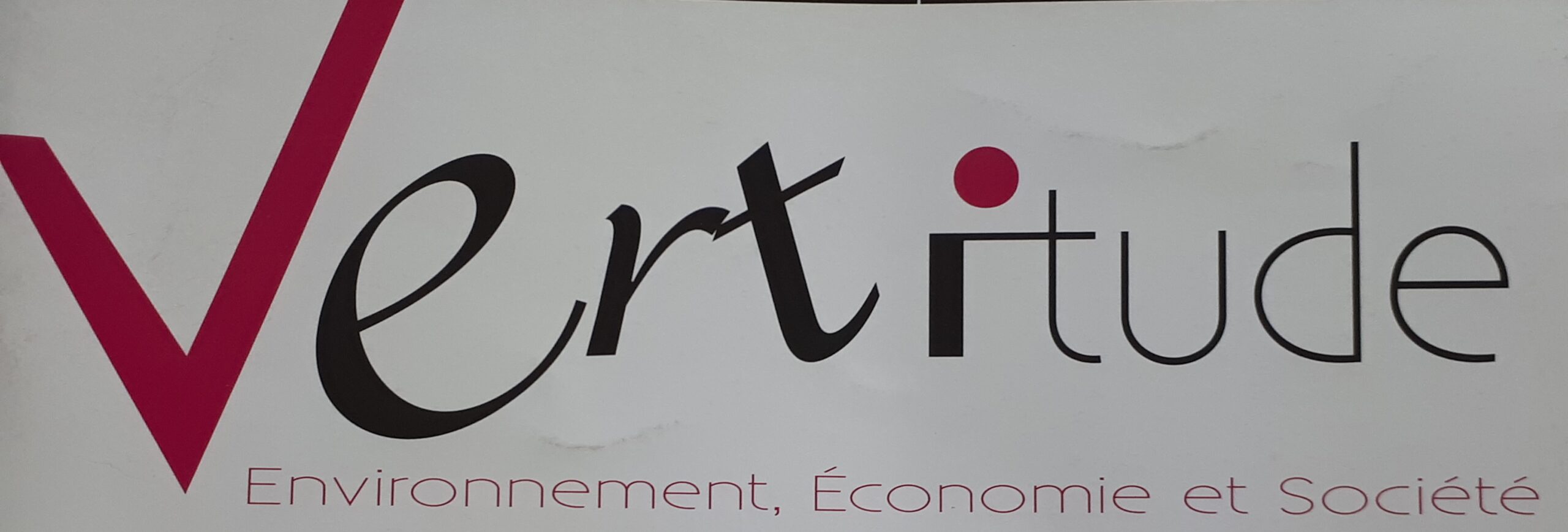
- The International Public Relations Association adopts the Code of Conduct of Public Affairs. This new code, the Code of Brussels specifies the conditions of ethical practices in public affairs worldwide.
- Creation of Vision durable, a Quebec magazine and its daily news site focussing on responsible business.
- The Tremblant Forum on Corporate Responsibility and Sustainability, organized by the public relations firm NATIONAL, devotes its 2007 edition to responsible communications.
- Creation of Public Relations Without Borders on the values of sustainable development by a team of 12 founding members and first board of directors, which sees to the implementation of its legal, regulatory, financial and organizational foundations: its two initiators, Luc Beauregard (chairman) and Stéphane Prud'homme, Rick Petersen (executive director), Mélanie Joly (secretary-treasurer), Marieke Tremblay and Jean-François LeBrun (fundraising campaign), Solange Tremblay (organization of the first missions and Oxfam-Quebec partnership), Hubert Bolduc, Bernard Motulsky, Cédric Orvoine, Marc Osborne and Myrian Marotte.
- In the fall of 2009, the organization of a public launch raises a lot of interest, following the realization of its first mission. PRWB Annual Report
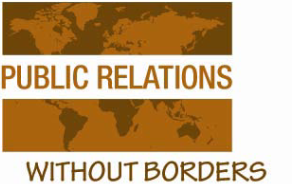
- Quebec’s Government Sustainable Development Strategy 2008-2013 comes into force. The strategy comprises a vast plan for awareness-raising, education, and training, and underlines the central role of communicators in the implementation of Québec’s Sustainable Development Act.
- Adoption in Canada of the Federal Sustainable Development Act which foresees the development and implementation of a global Canadian strategy.
- Following requests from Quebec and Canadian professionals in recent years to revise their code of ethics, a research stressing the importance of codes of conduct, adapted to the evolution of communications practices is published: Proposal for a New Framework for the Ethical and Professional Conduct of Public Relations Professionals. Published by the Centre for Sustainable Development, Ethics and Communication.
- Creation of the Conseil québécois des événements écoresponsables, an information and exchange platform that facilitates the organization of sustainable and ecoresponsible events in Quebec.
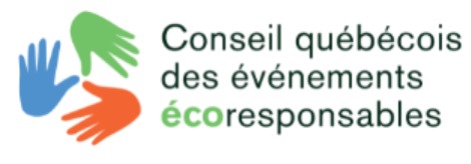
- Following the adoption of the Quebec (2006) and Canadian (2008) acts on sustainable development, UQAM initiates the first graduate-level program in Canada, focusing on communication and management sciences applied to corporate social responsibility. It aims to prepare specialists qualified to accompany organizations in their integration of a culture of responsibility and sustainability according to a vision that recognizes the necessary accountability of their activities on the world in which they operate and a communications model based on dialogue, transparency and responsibility in all their activities. The program was jointly developed by members of the Faculty of Communication (Solange Tremblay, Danielle Maisonneuve, Gilles Coutlée) and the School of Management (Alain Lapointe, Jean-Pierre Revéret). Communiqué
- Release of the results of the first pan-Canadian survey on sustainable development which reveals citizens' concerns and the lack of communication in businesses with respect to sustainability issues. Coauthored by Solange Tremblay and Guy Lachapelle, the study is published in The Disloyal Company, a book by Léger Marketing.
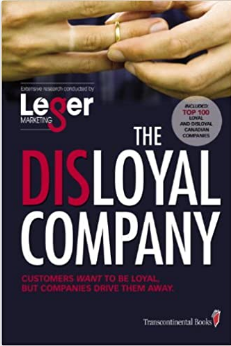
- In response to a strong demand for information on ethical questions, a french website on ethics and deontology in communication and public relations practices is created by researchers of the Centre for Sustainable Development, Ethics and Communications to guide communications professionals in their increasingly complex responsibilities.
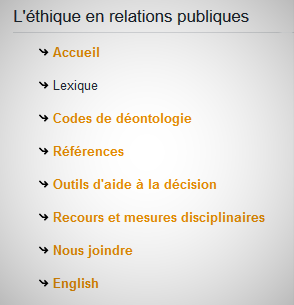
- Publication of the ISO 26000 Guidance standard: Guidelines on social responsibility encouraging all types of organizations worldwide to apply best practice in social responsibility. The standard helps organizations to identify and engage in dialogue with their stakeholders and to emphasize the importance of communicating their involvement and performances in matters of social responsibility.

- To allow a wider access to the information provided, the English version of the Ethics in Public Relations website is put online by the research team of the Centre for Sustainable Development, Ethics and Communications with the support of the Canadian Public Relations Society.
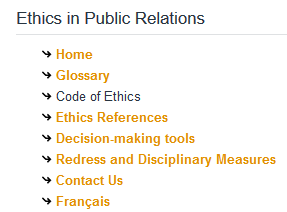
- The Réseau des femmes en environnement, the Conseil québécois des événements écoresponsables and the Bureau de normalisation du Québec launch the Standard for responsible event management: a nationally and internationally recognised benchmark to guide planners in making environnementally responsible choices.

- Closing of the Centre for Sustainable Development, Ethics and Communications at the Chaire de relations publiques et communication marketing (UQAM) at the end of 2010 and restructuring of the team under the name of SUSTAINABILITY|COMMUNICATION Group.
- Publication of the Guide BNQ 21000 aiming to encourage and facilitate the recognition and application of the principles of Québec’s Sustainable Development Act in all types of organizations. The guide views communication with stakeholders as being a foundation of all sustainable development approaches.
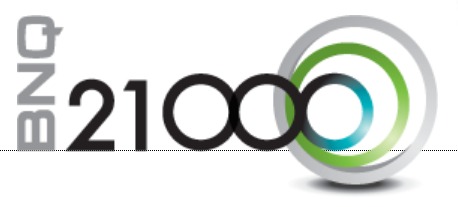
- Launch of Les Vivats competition, the awards for responsible event. An initiative of the Conseil québécois des événements écoresponsables. News Release

- Publication of the conclusion drawn from the Global Survey for Sustainable Lifestyles (GSSL), sponsored by the United Nations Environment Programme (UNEP). More than 8,000 young adults from 20 countries responded to this survey, the first in-depth research projects to be carried out worldwide on this subject. It reveals that young adults have very specific ideas about what it takes to build a more sustainable world. It also reveals an important communication problem that goes far beyond simple information in the eyes of youth around the world, a conclusion substantially underlined by young adults from Canada and the United States. The North American results, under the direction of Solange Tremblay (UQAM) and Guy Lachapelle (Concordia University), raise pan-Canadian media interest.
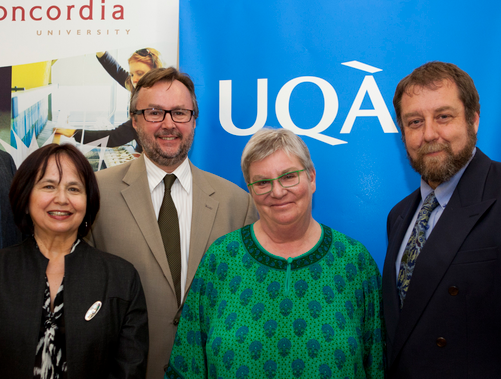
Press Conference, June 1, 2011 - SolangeTremblay and Guy Lachapelle (co-authors). Louise Dandurand, vice-president of Research and Graduate Studies, Concordia University and Yves Mauffette, vice-president, Research and Creation, UQAM.
- Publication of a study on Web-based communication about sustainable development in major Canadian corporations. Realized over a five-year period, the study is also the first to examine, on a large scale, the long-term evolution of web-based communication of the largest companies in an OECD member country. Highlights
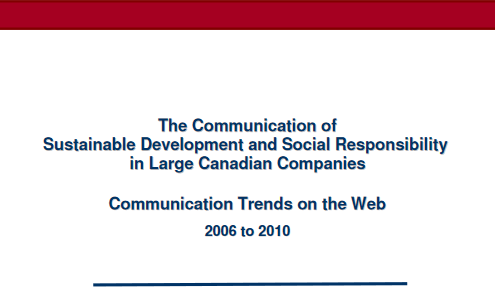
- A pioneer of ecology at the global scale and philosopher, Pierre Dansereau passed away on September 28, 2011, at the age of 99, just days before his 100th birthday. A great scientist and humanist, holder of numerous honorary doctorates, Pierre Dansereau is one of the few contemporary intellectuals to have aligned both the natural and human sciences. Always rejecting the rhetoric of despair and of the failure of the human adventure, Pierre Dansereau rather adopted a perspective of "joyful austerity" in the face of the planet's serious environmental problems, inviting people and researchers to engage socially and politically in the struggles for nature conservation and sustainable development. On October 4, 2006, this was also his main message to Quebec's communication specialists when they publicly committed to the values of sustainable development. Pierre Dansereau’s message
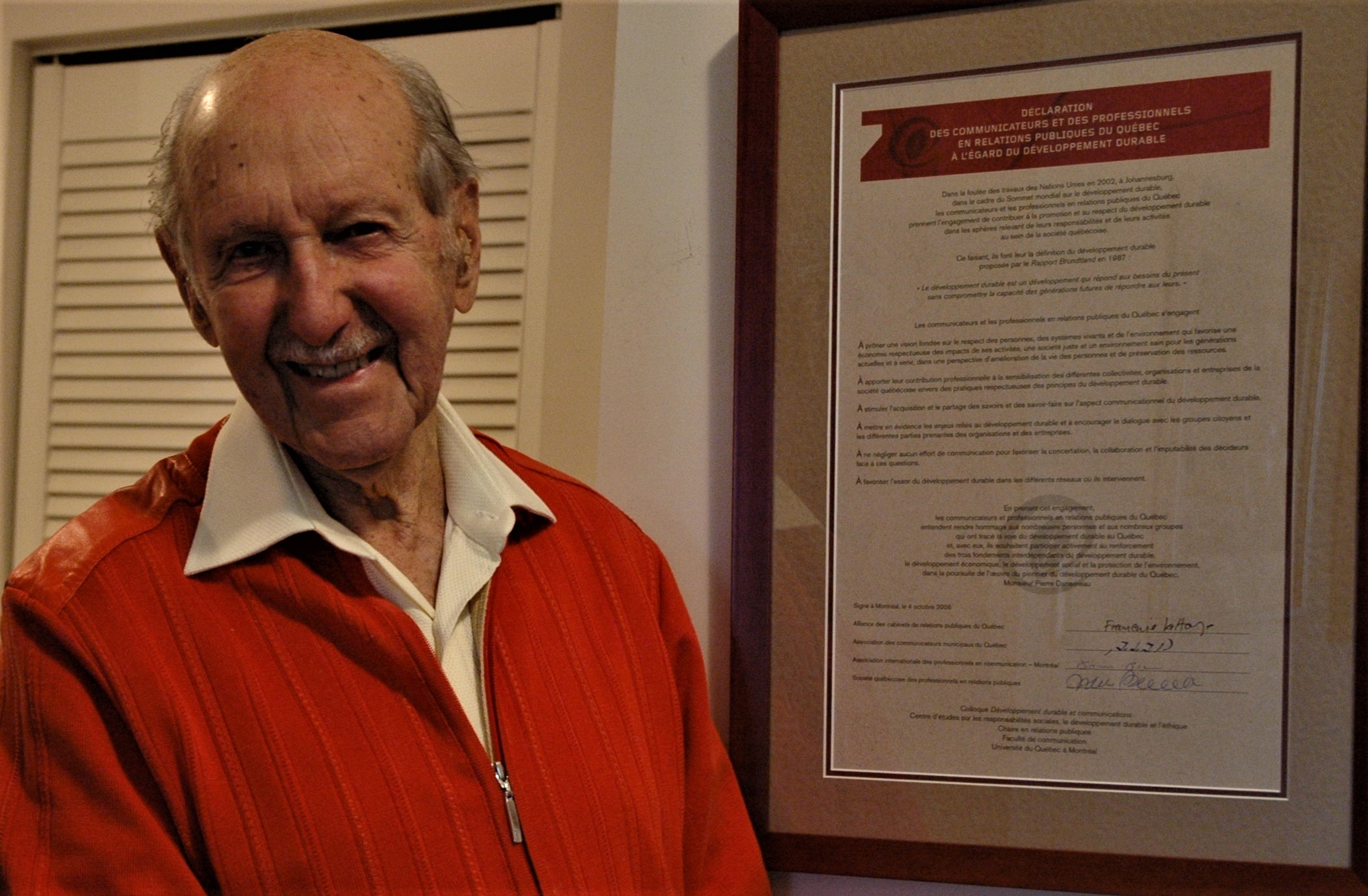
Presentation of the Declaration to Pierre Dansereau - December 2006 (Photo: Caroline Gélineault)
- As an integral part of the communication process, consultations are organized by the Ministère du Développement durable, Environnement et Parcs in order to contribute to the reflection and official positioning of the Quebec government in preparation for the United Nations Conference on Sustainable Development (Rio+20 Conference). On March 15 and 22, 2012, some 40 representatives from various sectors (NGOs, universities, industries, municipalities, unions, Aboriginal communities, etc.) meet in Quebec City and Montreal to share their opinions and recommendations on the two main themes of the Rio+20 Conference. Report
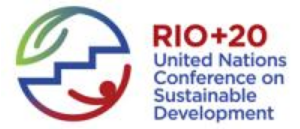
- A milestone moment of the decade in Quebec, the 'Printemps érable' ─ the strike of students opposing the Liberal government's projected increase in university tuition fees, and putting forward their concerns about environmental issues and democratic rights ─ plunged Quebec society into a major social crisis. The magnitude of the mobilization, which claims its place in the public space over nearly 7 months, making itself seen and heard with its red squares, its pressure tactics, its pan concerts, its numerous endorsements from public figures and citizens, its multiple arrests, receives continuous coverage from the major media in Quebec and Canada, and attracts attention almost everywhere in the world.
- Events, activities, awards, networking expand the place of sustainable development communication in Quebec under the dynamic guidance of a few groups − Réseau des femmes en environnement, Novae, Conseil québécois des événements écoresponsables and others. Research, teaching, publications and international collaborations continue for the SUSTAINABILITY|COMMUNICATION Group. Jobs are being created in organisations. Consulting groups emerge. Interest in these issues has increased. A community has formed.
- Founded under the aegis of the UN in 1952, the voice of the social sciences on the world stage, the International Social Science Council, organizes in Montreal the second edition of the World Social Science Forum, on the theme ‘Social Transformations and the Digital Age’. From October 13 to 15, 2013, hundreds of researchers from different social science disciplines from more than 80 countries gather to discuss in a single conference, the major issues of the day in the face of the growing role of digital technologies in all spheres of human activity: surveillance and espionage, social ethics and governance, participatory action research, hacking and video games, climate change, sustainable development... The communication of sustainable development is also on the agenda. WSSF 2013 - Sustainability Communication
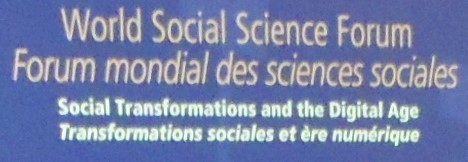
- Launch of the Novae Awards recognizing the best Quebec initiatives and practices in social responsibility and sustainable development. Awards
- Signature of a tripartite declaration on ethics for the biosphere between Montreal, Quebec City and Paris. The Muséum national d'Histoire naturelle in Paris, the Musées de la civilisation in Québec City and Montréal Space for Life (Botanical Garden, Biodôme, Insectarium and Rio Tinto Alcan Planetarium) have joined forces in a Declaration on an Ethical Code for the Biosphere. Through this gesture, the museums commit to active communications on this issue by promoting a culture of nature nourished by ethical considerations that foster unity between humans and the other components of the biosphere, and by contributing to the awareness and responsibility of citizens with respect to natural and cultural diversity. Initiative carried out within the Canada-France Agreement for Museums.
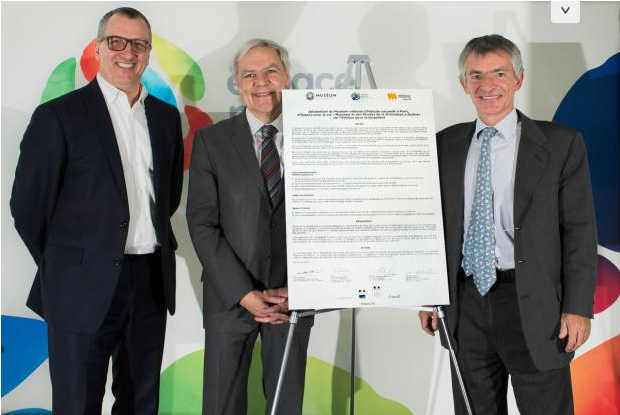
- Conducted in Canada, one of the few longitudinal studies of sustainability and CSR communication practices on the websites of very large companies, in an OECD country, provides a first glimpse of the new communication model that multinationals are shaping on the web on these issues. Journal of Global Responsibility
- Under the theme Light on Science in reference to the International Year of Light, the 10th edition of 24 Hours of Science becomes the largest festival of culture and scientific communication in Canada. With more than 350 activities, the event explores a wide variety of fields, including the environment and sustainable development.
- Launch of Développement durable - Une communication qui se démarque at Presses de l'Université du Québec. Edited by Solange Tremblay, Nicole D’Almeida and Thierry Libaert, the book is only the second to be published in Quebec and Canada on this very sensitive subject, 10 years after Développement durable et Communications – Au-delà des mots pour un véritable engagement, published in 2007.
- The book focuses on these new practices advocating civic engagement, the protection of the Earth's resources, the relationship of Man with nature, equity, democracy, solidarity, as well as the essential role of communications in guiding the commitment towards sustainability in a responsible manner.
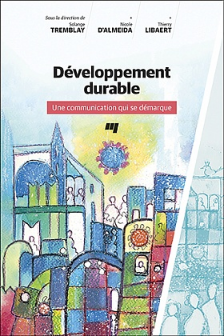
- Renewal of the commitment of communicators to actively exercise their role in promoting the values of sustainable development. On Wednesday, March 21 in Montreal, twelve years after the Declaration of the Communicators and Public Relations Professionals of Quebec on Sustainable Development, the professional associations reiterate their commitment during the launch of the second book on the issue. Continuing Commitment
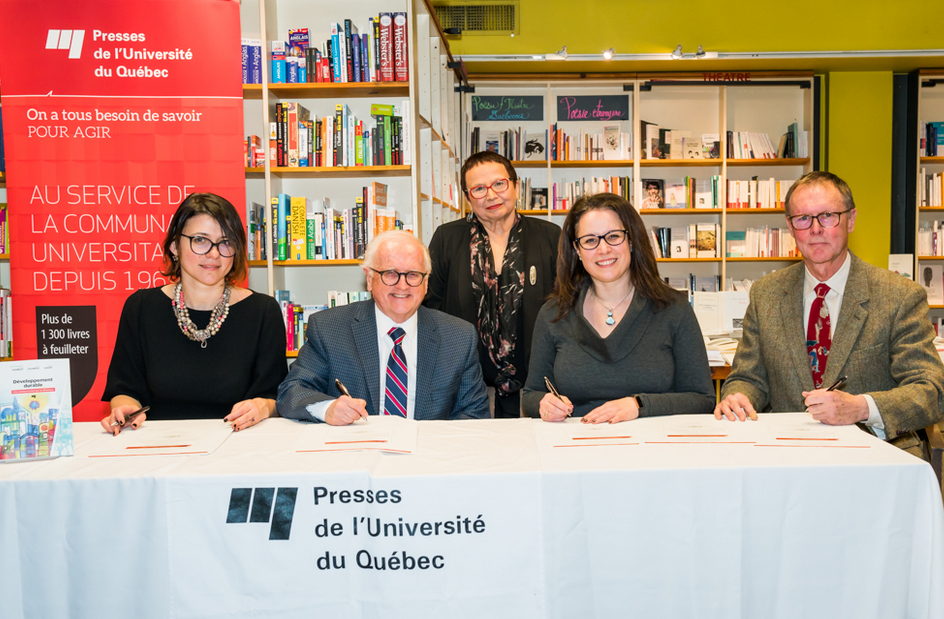
First rank: Maria Constantinescu, past president - IABC/Montréal, Yvon Desautels, secretary-treasurer - Alliance des cabinets de relations publiques du Québec, Annie Paré, president - Société québécoise des professionnels en relations publiques, Guy Versailles, president - Public Relations without Borders. Absent : Louis Latraverse, president - Association des communicateurs municipaux du Québec. Second rank: Solange Tremblay, author.
- Creation of an international francophone research network on environmental communication and sustainable development.
- Created on November 22, 2018, under the umbrella of the Société Française des Sciences de l'Information et de la Communication (SFSIC), the Groupe d'Études et de Recherche (GER) Communication, Environnement, Science et Société intends to bring together researchers from several French-speaking countries including Canada. The SUSTAINABILITY|COMMUNICATION group is closely associated with it.
- On June 17 and 18, 2019, forty researchers from different countries meet in Aix-en-Provence for the launch days of the new network.
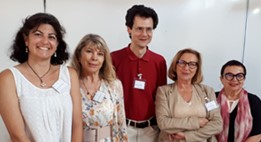
The organizers, Céline Espuny - Aix-Marseille Université & Andrea Catellani - Université Catholique de Louvain la Neuve (Ranks 1, 3) and their close collaborators, Françoise Bernard - Aix-Marseille Université, Nicole d'Almeida - CELSA Paris-Sorbonne, Solange Tremblay - SUSTAINABILITY|COMMUNICATION Group.
- The Global Climate Protests of Fall 2019 is making its mark around the world as huge crowds in every corner of the globe march in the streets to demand concrete action from their governments. At the invitation of Greta Thunberg, leading the procession in Montreal, Quebec and Canada are no exception: long rallies, often described as historic waves, are marching in major cities chanting the urgency to protect the planet.

- The most serious health crisis of our time hits the world with the devastating spread of Covid-19 across the planet, and directly challenges communication specialists at the heart of the turmoil.
- A little more than 15 years after the first large-scale survey on public relations in Quebec (Danielle Maisonneuve, Solange Tremblay and André A. Lafrance) published in 2004, a new text reviews the results of this research by analyzing the transformations observed in communication practices since the beginning of the new millennium: a rich source of information for students, teachers and practitioners. Publication
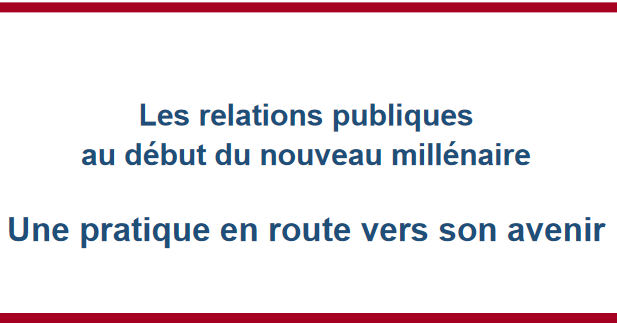
- 2021 begins with a broad mobilization of the communication community to unite professionals and researchers into a unified force in the face of the deadliest global health crisis of our time and the increasingly aggressive climate emergencies around the world. The International Declaration of Communications Professionals and Researchers for a Healthier, Viable, Better World calls on all communication experts to make a grand gesture of unity in addressing the growing global crises by committing to accompany our societies towards a healthier world. Sponsored by ORBICOM – the International Network of UNESCO Chairs in communication, the Declaration is rapidly endorsed by several large international societies and spreads out quickly in both hemispheres: chairs, observatories, networks, consulting groups, associations, institutions... Collaborations are multiplying and to the six original languages - French, English, Spanish, Portuguese, German, Italian - are added three new ones: Turkish, Dutch, Greek. More

- Recalling how the fall of the Berlin Wall on November 9, 1989, had major repercussions in communications, an article published by the International Public Relations Association explains how decisive public relations initiatives promoting dialogue over conflict were instrumental for understanding, unity, freedom of expression and democracy around the world. A mention also points to the major mobilization launched, more than 25 years later, by the International Declaration of Communications Professionals and Researchers for a Healthier, Viable, Better World. Article
- The Declaration continues to expand and after a year of mobilization in all corners of the globe, five major international organizations have become important partners of the initiative alongside its official sponsor, ORBICOM −International Network of UNESCO Chairs in Communication, and INTERDECOM, the organization behind the commitment. With representation in more than 40 countries, over 130 professional and scientific organizations have rallied to the importance of this commitment, including 15 international and global communications societies and over 25 associations, active at the national or regional level on one or another of the 6 continents. PRESS RELEASE


